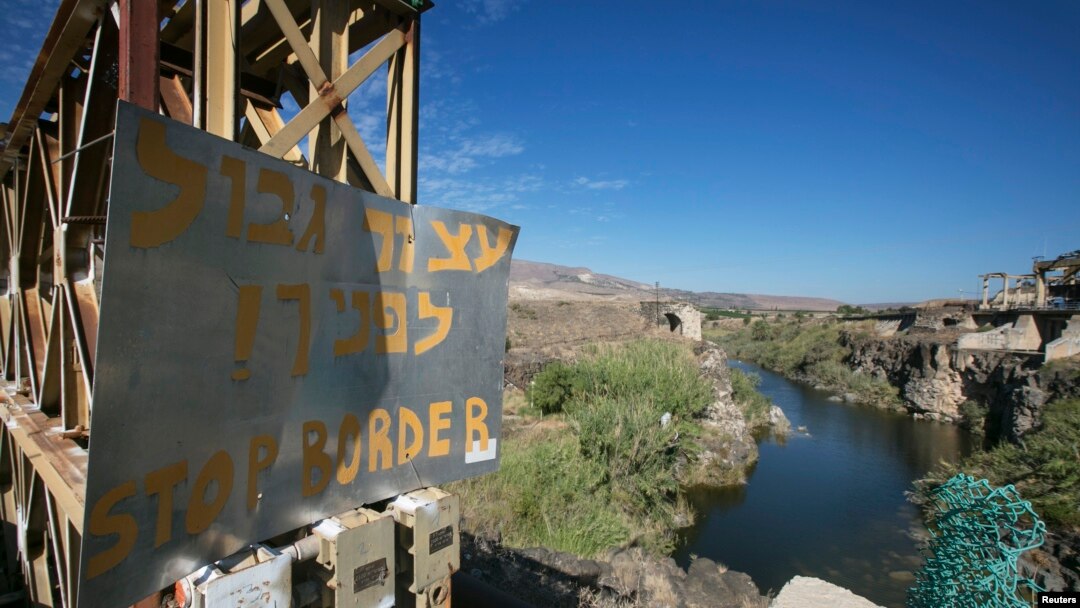Gains by Islamic State (IS) militants in Syria and Iraq are heightening concerns in neighboring Jordan, which is struggling to shelter 600,000 refugees from Syria’s civil strife and dealing with a backlash from Islamist groups within its own borders.
Jordan, nestled between Syria and Iraq, is a member of the U.S. coalition battling the radical terrorist organization, whose members currently hold vast swaths of both countries. Jordanian fighter planes have participated in targeting IS positions inside Syria, and Jordanian intelligence has gathered significant information on the group.
That has led to fears in Jordan that the kingdom may be the target of IS retaliation.
Jordan’s Islamic Front Party, for instance, has warned against any Jordanian role in the anti-IS campaign. But Bessma Momani, associate professor of International Relations at the University of Waterloo, said the Islamist stance in Jordan is less about support for IS and more a reluctance to send troops or military equipment outside the country.
“There's no domestic appetite to fight this elusive [IS] force, because many Jordanians do not see its threat being near home,” she said. “Jordan has not engaged in its recent history in any military adventure, and there is a consensus throughout the country to focus on local concerns — especially the economy.”
Other analysts agree that Jordan is unlikely to widen its military role by sending troops into the fray — even if other nations are willing to do that.
“One of the Jordanian cabinet members gave a public statement [saying] that putting boots on the ground is not out of the question,” said Marwan Muasher, a former Jordanian foreign minister. “But I think that is unlikely and the parliament will stand very strongly against it.”
But Mohamed Rabie, author and former professor of international political economy, says Amman may have little choice.
“If the international coalition decided at one stage to put boots on the ground, Jordan would join them, and it has a very capable Special Forces unit that can do a great job on the battlefield,” said Rabie.
In IS crosshairs?
Indeed, Western officials have expressed concern over a recent statement by Abu Bakr al-Baghdadi, self-declared caliph of the Islamic State militia, designating Jordan as the caliphate's next strategic objective.
And while an advance on Jordanian territory would undoubtedly spark political and social upheaval throughout the kingdom, some experts call it a doubtful prospect.
“[IS] thrives in countries with a political vacuum, or in a state of anarchy, which is exactly what we are seeing in Syria and to a less extent in Iraq,” Momani said, adding that IS currently lacks the force to launch another major offensive.
Ex-minister Muasher, however, warns that Arab countries such as Jordan are exactly where pro-IS sentiments are on the rise.
“It is not because [some people in those countries] agree with its ideology, but because they see it as a sign of protest against political systems that they are not happy with,” he said.
Some 2,000 Jordanians have already joined IS or other Islamist groups fighting in Syria and Iraq, Muasher added.
“This is a problem that Jordan has had in the past, starting from the Afghan struggle against the Soviets in 1980s,” he said.
Jordan is already home to millions of Syrian and Iraqi refugees, a community some experts call a ripe breeding ground for IS sleeper cells.
“Jordanians have been effective in keeping their eyes and ears on those refugee communities to ensure there are no sleeper cells,” Momani said. “Jordanian intelligence is famous for having a great capability to penetrate much of its domestic communities.”
Intelligence role
For years, says analyst Rabie, Amman's intelligence community has been collecting valuable information on a domestic Islamist organization that eventually helped to form IS.
Centered on Abu Musab al-Zarqawi, the Iraq-based al-Qaida operative who was killed in 2006, has proven unusually valuable in understanding the IS threat.
“Because Zarqawi, who created al-Qaida in Iraq, was a Jordanian, Jordan had excellent intelligence information about Zarqawi and whoever was affiliated with his group,” said Rabie.
“The information that Jordan has offered on ISIL has proved to be very efficient in the past,” added Muasher, explaining that Amman's intelligence officers were key to curtailing IS's massive streams of illicit revenue and money laundering efforts. “Also, Jordan has an extensive network of contacts with the Sunni tribes in Iraq that can be utilized to lure them away from supporting ISIL.”
Like many Jordanians, Muasher is also worried about the spread of IS propaganda — the kind that lure youth into the radical fray.
“The cultural war between an inclusive, peaceful and pluralistic discourse — and the discourse of violent exclusionists like ISIL — is really the war that needed to be won,” he said.


